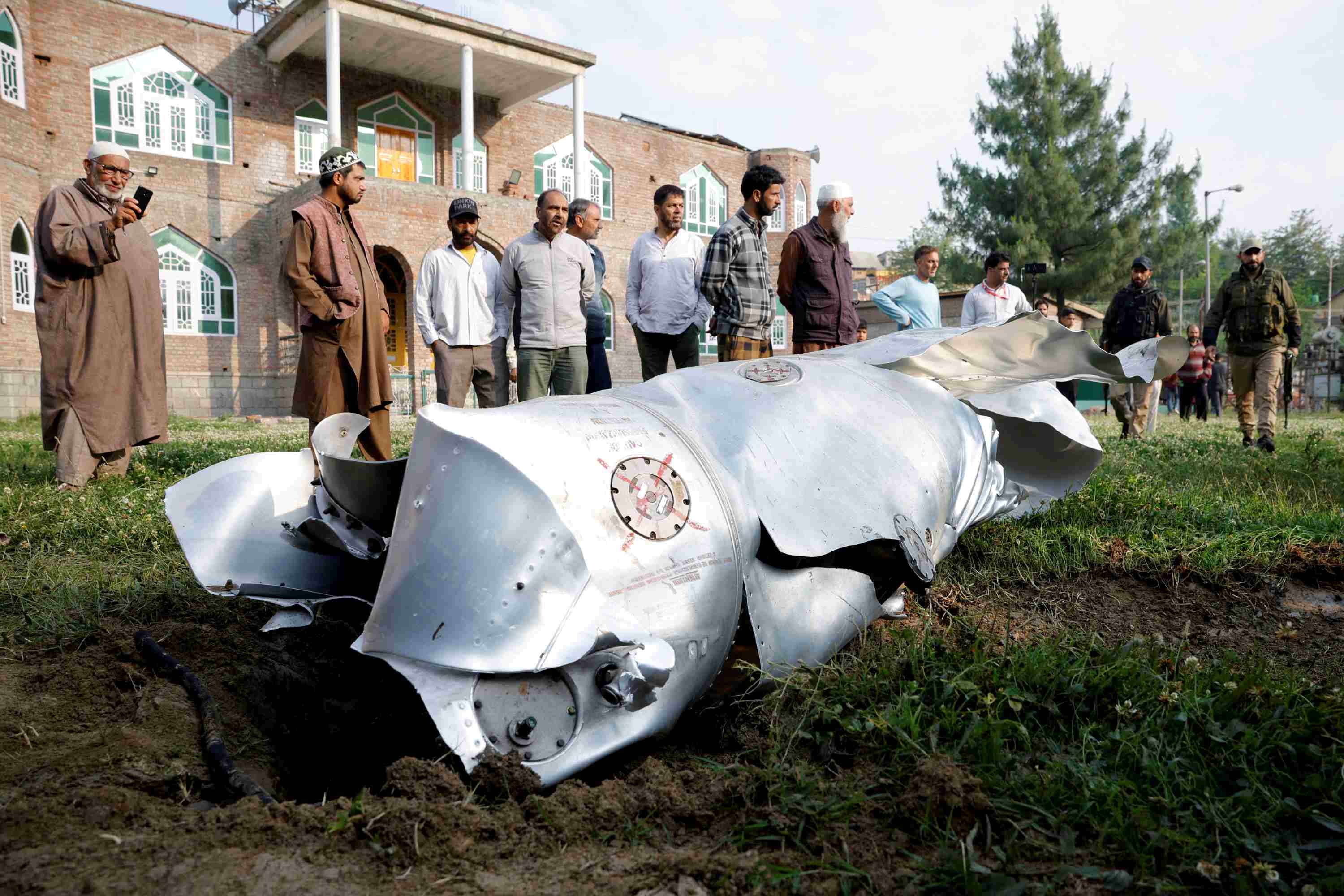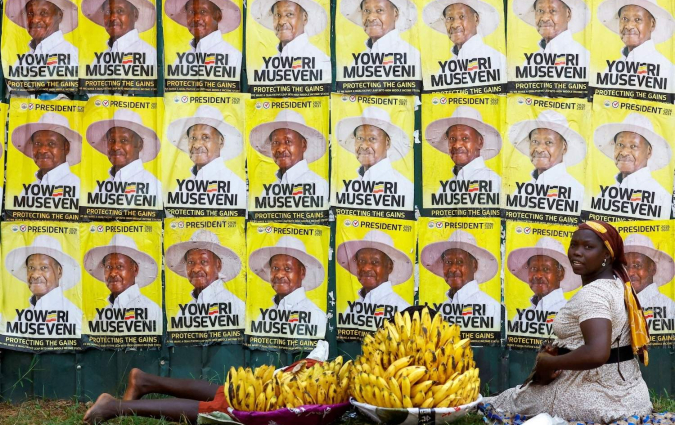How an Indian news website was blocked by the government amid the conflict with Pakistan

Metal debris lies on the ground in Wuyan in India-administered Kashmir's Pulwama district, May 7. REUTERS/Sharafat Ali
On Friday, May 9, amid uncertainty and fear around a burgeoning conflict with Pakistan, readers across India found they could not access The Wire, an online news outlet. The website had been blocked at the government’s orders. The independent nonprofit’s founding editor, Siddharth Varadarajan, didn’t know why.
Since then, both the clash between India and Pakistan and the government’s blocking of The Wire have de-escalated. On Saturday, May 10, US President Donald Trump announced his country had brokered a ceasefire, which, despite ongoing tension, appears to be mostly holding. The same day, after being offline for over 12 hours, The Wire was unblocked in the early morning following the removal of an article on the conflict. However, some readers remained unable to access the website over 12 hours after the order to unblock, the outlet said in a statement.
Press freedom in India is in crisis, according to Reporters Without Borders (RSF)’s yearly index. Laws are increasingly used to suppress the media, and, while the blocking of a mainstream outlet like The Wire is unprecedented, access to some social media accounts has been barred by the government before. This includes asking X to block over 8,000 handles on May 8, including one belonging to BBC Urdu, as well as blocking the Instagram account of the US-based news platform Muslim and several Pakistan-based YouTube channels, including some belonging to mainstream Pakistani media outlets.
The situation in the Indian-administered part of the disputed region of Kashmir, where the latest conflict erupted, is even worse than in the rest of the country.
India’s territory of Jammu and Kashmir has been experiencing a crackdown on press freedom since 2019, when the Indian government stripped it of autonomy and placed it under the administration’s direct control. Since then, journalists have faced severe financial constraints as well as arrest and intimidation.
Siddharth Varadarajan, founding editor of The Wire, corresponded with me via email on the evening of May 9. He told me how the outlet found out it was being blocked and placed the events into a context of uncertainty around the future of press freedom in India.
Q. How did you find out your website was blocked?
A. I saw alerts from readers and colleagues when I woke up this morning [Friday, May 9].
Q. How does the block work?
A. The government instructs internet service providers (ISPs) to block access to a specified URL, in this case our entire domain, i.e. thewire.in.
Q. Does it only apply in India?
A. Yes, the remit of the Indian government applies only to Indian ISPs.
Q. Is this the first time this has happened to The Wire?
A. Yes, this is the first time in 10 years that the government has blocked access to our site.
Q. Did the Indian government give you a reason why?
A. We received no notice or communication from the government or any of its ministries or departments. It is only after we wrote to two ministries that we suspected were involved in the blocking decision – Information Technology and Information and Broadcasting – that we received any information, that too at 9:40 pm!
The Ministry of Information and Broadcasting said our site had been blocked because we had run a story on a CNN report, which had quoted a French intelligence official as claiming Pakistan had shot down an Indian Rafale during an air skirmish on the night of May 7 to 8. Only if we removed the story would our site be unblocked. Since going to court can be a lengthy and time-consuming process, and there was a need to have the block lifted immediately, we complied under protest, reserving our right to go to court to have the deleted story restored. A cached version of the original story exists here.
Q. Are you using any other platforms to keep publishing, such as Telegram, YouTube, WhatsApp, etc? Or any mirror sites?
A. The Wire continues to publish its regular site (for readers outside India and readers in India using a VPN), as well as through YouTube. A mirror site went up, too.
Q. How are you challenging this move?
A. Our lawyers are still formulating the optimal response and strategy, but The Wire fully intends to assert its constitutional rights in every possible way.
Q. Is this linked to the government’s requested blocking of X accounts reported on Thursday?
A. The government does appear to have intensified its censorship drive, but this is a qualitatively new deadly escalation, moving from blocking the dissemination of individual news reports via social media handles to blocking an entire website.
Q. How have you reported on the conflict with Pakistan so far?
A. We have covered the story with a great deal of restraint and responsibility, mindful of disinformation, the fog of war and the risk to lives through sensational or irresponsible reporting.
Q. Are you planning more coverage?
A. We will continue to cover the India-Pakistan developments as they happen.
Q. Are you concerned the government won’t back down on your block?
A. Even if the government does not, we have recourse to the courts. [As mentioned above, the block was lifted on May 10.]
Q. Have other news outlets been blocked so far during this conflict?
A. The Kashmir Walla, a Kashmir-based portal, was blocked [in 2023]. YouTube channels have been blocked, but this is the first time that a mainstream news platform has been hit like this.
Q. Have you received more donations than usual from your readers?
A. No, because the donation page is also blocked.
Q. Is this surprising or in keeping with Modi’s treatment of the press?
A. Modi has ridden roughshod over press freedoms, so this is not exactly surprising.
Q. Are you concerned about the possibility of further attacks from the government?
A. We expect our site to be unblocked shortly but the message will go down that the government has this sweeping power to cripple a site and is willing to use it. A lot will depend on how our higher courts treat this kind of attack on press freedom. I am optimistic that they will not let this stand.
Q. What is the press freedom situation like in Kashmir, where the media has long been under more intense restrictions?
A. If Kashmir were to have its own RSF press freedom ranking, I am confident it would be near the bottom of the global chart, several notches behind India's score. The level of harassment and repression is stunning, with reporters summoned to explain stories they've filed or social media posts that they have made, and then threatened with criminal cases, preventive detention or arrested on serious charges.
In every email we send you'll find original reporting, evidence-based insights, online seminars and readings curated from 100s of sources - all in 5 minutes.
- Twice a week
- More than 20,000 people receive it
- Unsubscribe any time






